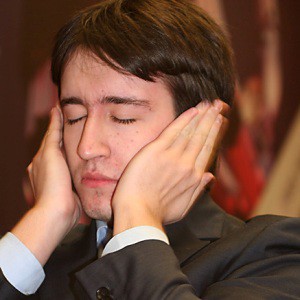
Guess-the-move: do you score as a great player?
 One of the most used method of chess training is the study of games from great players.
One of the most used method of chess training is the study of games from great players.
Unfortunately, many people just look passively at such games, observing the sequence of moves without any active thinking. Me too, sometimes I found myself pushing the "p" button that automates the show of moves from an interesting chess game: I can see the whole game in just a minute but, what does remain for my brain from it? In the long term, quite nothing.
On the contrary, an active learning approach requires that our brain works into the problems arisen during the game. Every game is a story, so let's try to catch up the most from it.
Thank to chess.com nice applet for chess quiz, "guess-the-move" is a fantastic training way to look at games from great players. You have to play into the mind of GMs, not only look at their moves.
In my experience, every training method needs an appropriate feedback, in order to record progress and build engagement in the user. So I propose you a simple way to track your performance in guess-the-move exercises (in general, not only here on chess.com).
Let's start with a recent game of Teimour Radjabov from the 2011 World Cup.
Try to find the move played by the hero. If you find it at the first try, perfect, move on. You're allowed 3 shots to find the correct move, but give you a point for each "error". You can click the "help" button in case you miss the move: give you 3 points in this case.
Here is the points scheme.
Correct move at:
first try = 0 points
second try= 1 point
third try= 2 points
help= 3 points
When the game exercise is finished, sum up your points and you'll have a total points number.
Let's move a small step ahead. Calculate now a performance score in this way (don't worry, it's easy):
score=100-[ ( 100*totalpoints) / (gamemoves*3) ]
where gamemoves is the total number of moves of the game.
The closer your score is to 100, the better is your understanding of the game.
Report your score in the comments, along with your chess.com online rating. I will try to calculate some correlations… (or eventually, to refine the formula).
Have a nice training!
S.
P.S.
In case you want to try this without computer on "paper games", keep a paper notebook and sign your first 3 choices for each move. Then look at the played move and give you the according points.
